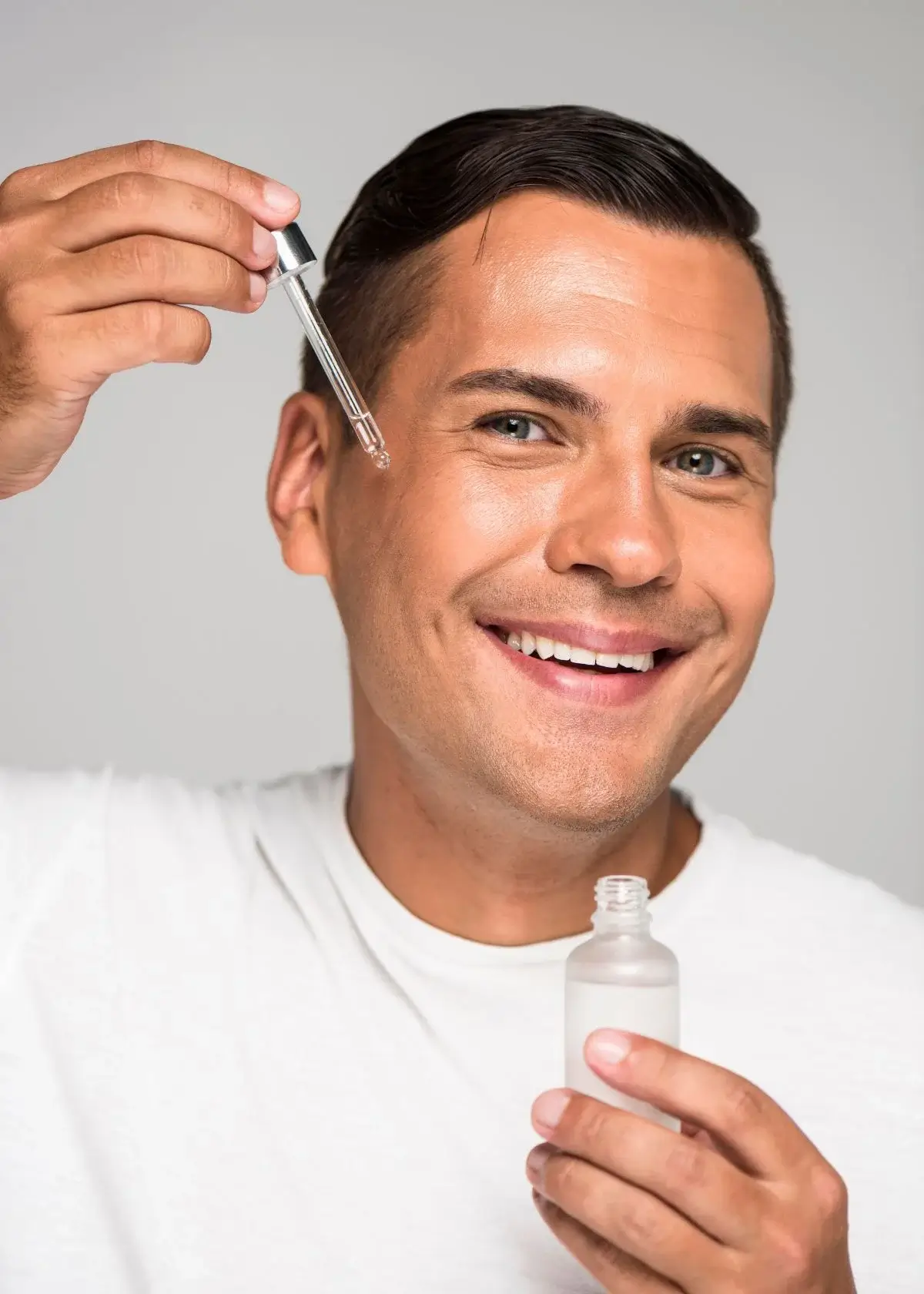Men's skin is often ignored or underrepresented in skincare products. However, over the years, men have become increasingly conscious about their appearance, often seeking ways to improve their skin's health and maintain a youthful appearance. One popular ingredient, especially in anti-aging products, is retinol. However, many guys are unaware of what it is and how retinol can help them achieve excellent skin. This blog post explores retinol and what it does for men's skin.
What is Retinol?
Retinol, commonly known as vitamin A, is a powerful antioxidant, bioactive compound, and the essential ingredient in most anti-aging products. It is a fat-soluble vitamin found in numerous skincare products such as serums, creams, and gels. When applied topically to the skin, it gets absorbed and converted into retinoic acid, which helps the skin to regenerate and heal itself. Its healing properties make it an excellent ingredient for treating skin problems such as acne, fine lines, and wrinkles.
Anti-Aging Benefits
Retinol has proven anti-aging benefits for men's skin. As men age, their skin can accumulate various environmental stressors and become rough, dry, and prone to wrinkles. Retinol can help improve the skin's texture and stimulate collagen production, a protein that gives the skin its elasticity. With its exfoliating properties, retinol helps to remove dead skin cells and unclog pores, reducing the appearance of fine lines, deep wrinkles, and sun damage.
Reduces Acne
Acne is a common skin problem for most men, resulting from oil buildup in the skin's pores. Retinol helps to reduce acne by regulating oil production and preventing clogged pores. By speeding up cell turnover, retinol can help to flush out impurities and prevent future breakouts. It does this by increasing the production of new skin cells, replacing the old ones more prone to clogging pores.
Improves Skin Tone
Retinol can help to improve men's skin tone by reducing age spots and hyperpigmentation. With its exfoliating properties, it helps to remove dead skin cells, revealing a more even-looking complexion. By rejuvenating the skin cells, retinol helps to reduce the appearance of discoloration, making the skin look more youthful and radiant.
Easy to Use
Retinol is easy to use and can be incorporated into any skincare routine. Start with a small amount and gradually increase the dosage as the skin adapts to the product. Use it at night to prevent any irritation from sun exposure. Apply a moisturizer over the retinol product for best results to avoid dryness and keep the skin hydrated.
Retinol is a powerful ingredient that can help men achieve healthy, youthful-looking skin. It offers numerous benefits such as reducing signs of aging, acne, and hyperpigmentation. Retinol is a safe and effective product for most skin types and can be used daily to improve the skin's texture and tone. With some patience and regular use, men can achieve their skincare goals and have perfect skin that even the most discerning fashion lovers will admire.
If you're a man who is looking to take your skincare routine to the next level, then you'll want to check out our research on the best retinol for men. We've done the work for you, scouring the market for the top retinol products that will help improve your skin's texture, reduce fine lines, and even out your skin tone. And now, we're ready to share our findings with you. Just follow the link, and you'll discover your next favorite retinol product to keep your skin looking its best. Don't wait any longer to upgrade your skincare routine and start seeing results.
What is the proper way to apply retinol products for optimal results?
It's crucial to follow a precise routine to maximize the benefits of retinol. Start by applying a pea-sized amount of retinol to clean dry skin at night. It's advisable to begin with a lower concentration (around 0.25% or less) and gradually increase it as your skin builds tolerance. Patience is essential; it may take several weeks to notice significant results. Always use a broad-spectrum sunscreen during the day because retinol can increase skin sensitivity to UV rays. Initially, avoid combining retinol with other potent active ingredients to minimize the risk of irritation. Furthermore, make sure to moisturize generously to combat potential dryness.

What are some common misconceptions about using retinol for men?
Several things could be improved surrounding the use of retinol for men. One prevalent fallacy is the belief that retinol is exclusively for women. Retinol is equally effective for men, improving skin texture and reducing signs of aging. Another common misconception is that retinol can make the skin thinner. When used correctly and in appropriate concentrations, retinol promotes collagen production, making the skin thicker and more resilient. Besides, some individuals fear excessive peeling and redness, but these side effects can often be managed effectively by gradually introducing retinol into one's skincare routine and diligent moisturization.

What key ingredients pair well with retinol in a skincare routine?
Retinol can be seamlessly integrated into a skincare routine with complementary ingredients. For enhanced results and minimized irritation, consider pairing retinol with hyaluronic acid, known for its exceptional hydrating properties, which helps combat potential dryness. Antioxidants like vitamin C can boost the efficacy of retinol by protecting the skin against free radicals, resulting in a more youthful complexion. Niacinamide is another ally, as it helps soothe the skin and reduce potential irritation, making it an excellent companion to retinol. Peptides, in turn, can stimulate collagen production, contributing to firmer and more youthful-looking skin when used alongside retinol.

How can men minimize the risk of experiencing retinol-related skin irritation?
Men can take specific steps to minimize the risk of skin irritation associated with retinol use. Firstly, start with a lower concentration, typically around 0.25% or less, and gradually increase it as your skin adapts. Initiate your retinol regimen by applying it every other night to give your skin time to acclimate. Following your retinol application with a rich moisturizer is essential to combat dryness and reduce the likelihood of irritation. Avoid harsh physical exfoliants while incorporating retinol into your routine, as this can exacerbate sensitivity. Lastly, apply sunscreen daily to protect your skin from UV damage, especially when using retinol.

How can I effectively address dryness and flakiness while using retinol?
Dryness and flakiness are common side effects when using retinol. To address these issues effectively:
- Integrate a hydrating and occlusive moisturizer into your skincare routine.
- Look for moisturizers containing ceramides and fatty acids, which help strengthen the skin's barrier, preventing excessive moisture loss. Consider using a humidifier in your living space to maintain optimal moisture levels in the air, which can benefit your skin.
- If dryness persists, reduce the frequency of retinol application to every third night until your skin fully adjusts to the treatment.
Should I apply retinol to my face or only to specific problem areas?
Applying retinol to your face is generally advisable rather than limiting it to specific problem areas. This comprehensive approach ensures uniform results and addresses potential concerns before they become visibly noticeable. Applying retinol evenly across your face contributes to a more balanced complexion and consistent results. However, if you have susceptible areas around the eyes or mouth, you can apply a thin moisturizer before retinol to create a protective barrier. Regardless, maintaining consistent application across your entire face is typically the most effective approach for reaping the full benefits of retinol.







